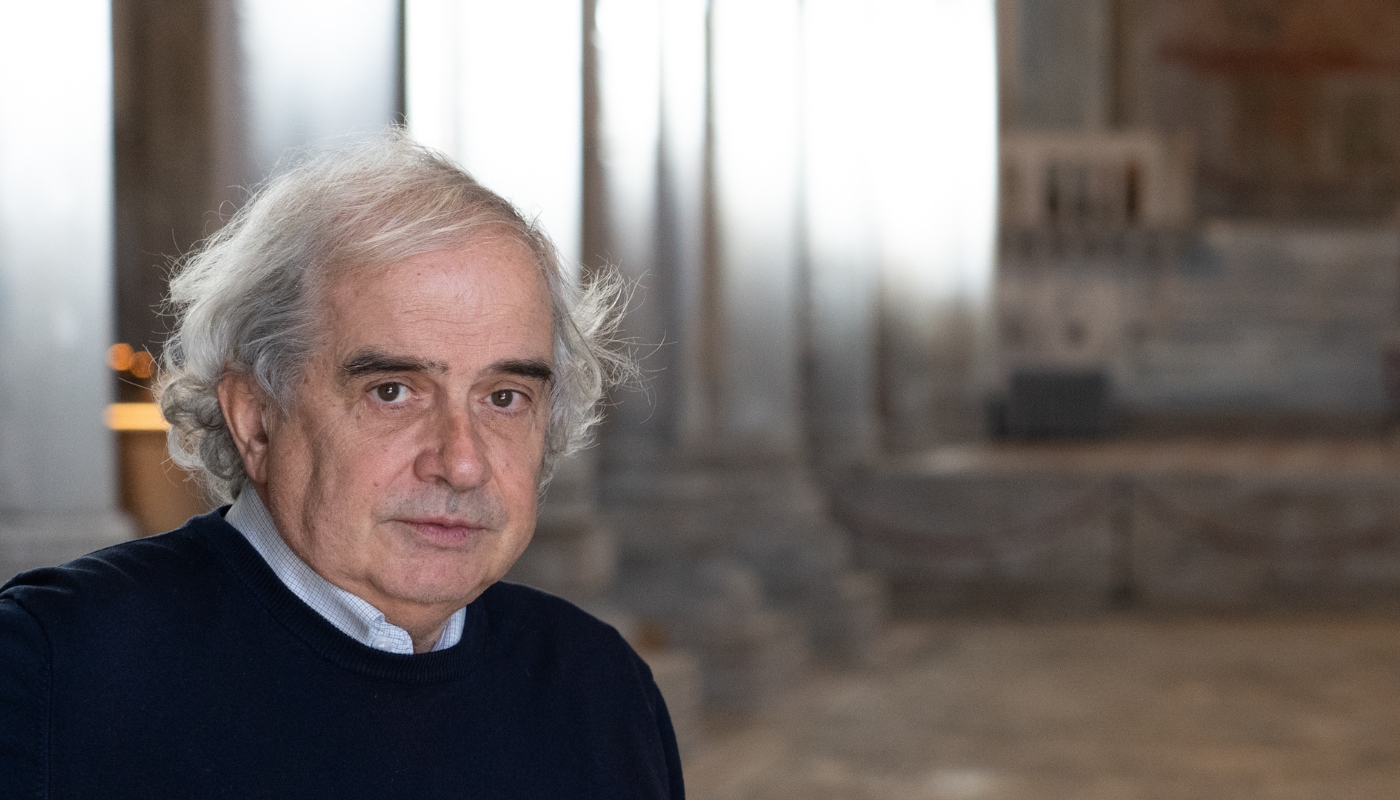
KULTURA …
BY ANDREA BELLAVITE
It is the most uttered and heard word in the space-time fragment that is the Gorizia territory in the third decade of the third millennium.
And it is at a very sensitive international moment. The war in Ukraine, the resumed genocide in Gaza, the election of Trump as president of the United States of America and his interventionism in international economic and political dynamics, the European Union’s choice of rearmament that has created havoc everywhere within the party camps… All this and more has created a climate of insecurity and fear that pushes public opinion, even the self-styled enlightened public, toward one possible solution: increasing the percentages of the budget to be allocated to the production and purchase of weapons. Yet the arms race had brought the world to the threshold of general catastrophe, and in previous decades negotiations to dismantle arsenals, particularly nuclear arsenals, had been greeted with cautious satisfaction. War, besides being its destruction, is also the negation of Culture, and reliance on weapons as a means of conflict resolution is nothing but resignation to the law of the jungle, a return to a prehistoric conception of homo sapiens.
Yes, because Culture is an expression that pertains exclusively to anthropos, since it consists essentially of language, this formidable tool that has enabled us to make universal heritage what has been the individual experience of billions of us. Thanks to this uninterrupted transmission, social traditions were formed, scientific discoveries followed, and the laws of communities were defined. Above all, the consciousness of each person has been constructed, the result of an endless series of interrelations, encounters and clashes that make each person what he or she is and can place his or her individual tile in the immense mosaic of human history.
Culture is human, before being Slovenian, Italian, Friulian, Albanian, Serbian, Bosnian, Afghan, Senegalese, Russian, Ukrainian, Palestinian, Israeli or American. It does not isolate groups by enclosing them in the tomb of identities, but allows particularity to become gift, specificity to turn into generality. It is at the same time universal and singular, it welcomes totality and enhances fragmentarity, it possesses an infinite and transcendent dimension within the need to embody itself in the concreteness of the recognition of the other. Culture grounds peace in justice because it presupposes freedom, equality and fraternity. It transcends all forms of nationalism and racism, even of a fascism that cannot find a place in institutions, least of all in the form of supposed preservation of the memory of nefarious historical events. Every human being, as a subject, is a conscious builder of it, provided it does not claim to define, enslave or exhaust it. It grows only in the courage of unlimited welcome, where everyone is an equal bearer of universal dignity, including those who arrive exhausted from the Balkan route and upon arrival are forced to sleep rough on our icy squares.
The message of Nova Gorica and Gorizia “European Capital of Culture” is extraordinary and transcends the territory, claiming to help raise awareness of what it means to be “homo” today, in Europe and around the World. The thousands of initiatives – conferences, art exhibitions, concerts, theaters – will attract a diverse audience from different nations. What will the visitors bring home? Perhaps the certainty that the Planet can only be at peace when all borders are broken down, the internationalism of Culture will determine and not be determined by that of markets. Perhaps the “Basaglian” awareness that the first task of each is to be attentive to the needs of the other. Perhaps the conviction that the law of gift must prevail over the law of possession and that a society in which “to each according to his needs, from each according to his possibilities” is achievable. European recognition is bestowed on each citizen and citizen called to be authentic protagonists in demonstrating how possible it is to realize the miracle of a human community founded on the celebration and appreciation of each person’s diversity. The European Capital of Culture cannot but also be a European capital of welcome and peace.
The resumption of Isonzo Soča’s journey, in the wake of the intuition of Dario Stasi and his collaborators, is intended to provide a formidable tool, built together by the work of an Italian-Slovenian editorial staff, to foster the growth of this essentially human Culture, beginning in Nova Gorica and Gorizia to reach every corner of the World with an invitation to mutual respect, to the discovery of the beauty of otherness, and to the recognition of the elementary truth: only Culture must be the foundation of all political, economic and social action.
